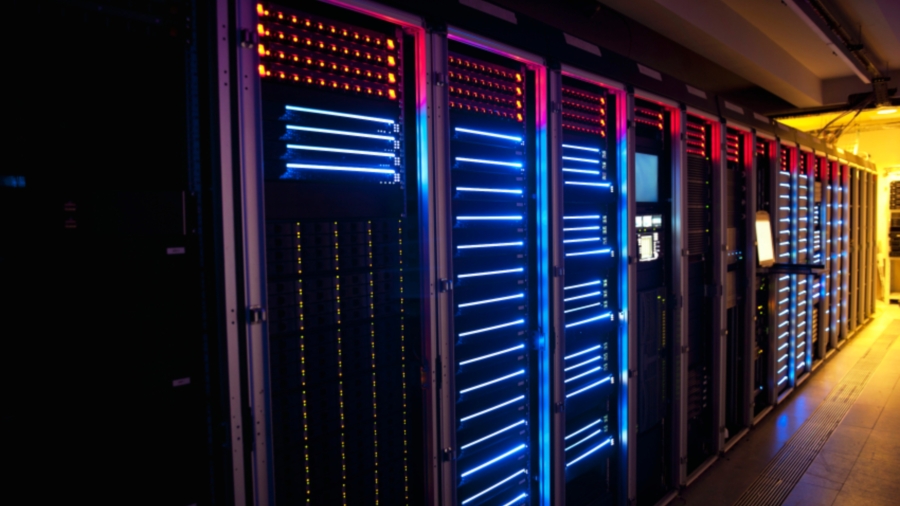
A business knows that it's growing when it's handling so much data that it struggles to find space for the necessary hardware and needs an in-house IT team to keep everything running. It will also be thinking seriously about data backup and recovery, and whether it's reached the point when it should be using an external data centre.
The experience is not always a happy one, according to Steve Hone, Operations Director for the Data Centre Alliance.
"There is a history of failed marriages in data centres, mainly due to lack of planning, or over-promising and under-delivery of a service, or maybe because a client pushed too hard on price and squeezed the service to fit the budget," he says.
"You've got to choose someone you want to work with through thick and thin. You're not outsourcing the problem, you're outsourcing the application, and you will face issues you need to resolve by working in partnership."
Before decision
When looking for that partner, there are a number of questions to ask before making the decision. Victor Smith, Acting Chair of the Data Centre Specialist Group at the Chartered Institute for IT (BCS), says the first is to ask if you need a data centre or a more simple cloud service.
He says: "If you're starting from scratch now you have to ask if you need your own data centre at all when you can buy cloud services from Google or Amazon, which have got a lot of what you need such as email and scheduling, without having to run the data centre itself."
Smith says that cloud solutions make a lot of sense for many small companies, but there will come a point when going to a data centre becomes more cost-effective. This could work for hosting, in which the customer shares a server or rack with others, or co-location, in which it has its own rack and sends its own people to look after the equipment.
Sign up to the TechRadar Pro newsletter to get all the top news, opinion, features and guidance your business needs to succeed!
So what are the questions to ask when looking for the right data centre? Smith says there are some basics to consider, but the relative importance will vary between customers.
"How long has that provider been providing services? Do you need to have access to your equipment, to be close to the centre geographically? What are the terms and conditions? Do you have to sign up for three years or can it be for just six months?
"What sort of service level agreements are you going to get? What guarantees are they going to give on the power delivered and the availability of the systems?"
Availability minimum
The absolute minimum on availability should be 99.9% of the time, but many firms should be looking for 99.99%. Power supplies are an important element of this, and while most centres will have back-up generators it should be asked how often they are tested.
Temperatures should usually be between 16-24C and the humidity range 40-55%, and with cooling accounting for about half the cost of running a centre, it's worth asking how the cooling system works.
Customers should ask about energy efficiency, especially for a co-location where they will pay their own power bills. It's worth establishing what the centre does to reduce the costs, and whether it is always looking for ways to make further savings.
Networks are also important; a smaller data centre may have connections to just one or two network providers, while a large co-location provider could deal with several, which makes it more likely that a customer will find the one they prefer to use.
Hone, who is also founder of search and solution consultancy Colofinder, throws the emphasis onto operational best practice.
Complex beast
"There are about 50 things you should consider," he says. "A data centre is a very complex beast, so for best practice you've got to look at things like security, and it can get very detailed.
"There's who they let through the door, what process they go through to allow them access, whether visitors are escorted, do they have a logs on who comes in and goes out, and do they have a written process in place."
It's also worth asking if the centre is cleaned according to best practice, an issue that the DCA has highlighted in recent months. Any centre that leaves the job to a regular office cleaner is likely to be stoking up problems through contamination and the creation of zinc whispers that can damage machinery, there should be assurances that it is being done by specialists who know how to protect the data centre environment.
On top of all this, the big question to ask is what disaster recovery plan the centre has in place. If there's a major power breakdown, or flooding, or a fire on the premises, what plans are in place to ensure that it maintains its promised availability levels?
In the long term any customer has to be ready to ask these questions again, but they do so and receive the right answers it can provide the beginnings of a happy marriage with its data centre.